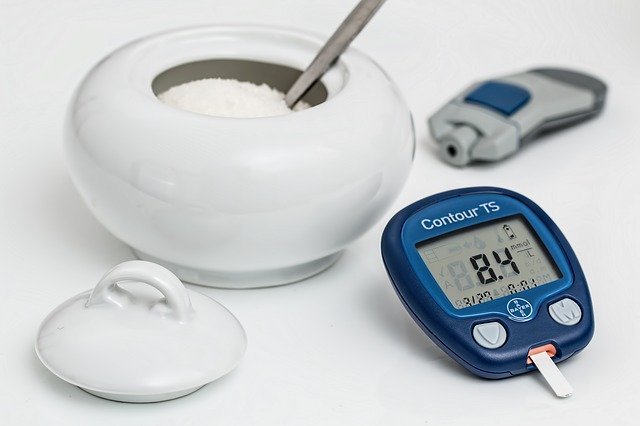
During National American Diabetes Association Alert Day on March 24, Texas A&M AgriLife Extension Service experts are asking Texans and others to learn more about diabetes and their risk for the disease.
“We want to encourage everyone to use this day to learn about their own family history of diabetes and to take the diabetes risk test if they feel they may be susceptible to developing diabetes,” said Danielle Hammond-Kruger, AgriLife Extension program specialist in the Department of Nutrition and Food Science at Texas A&M University, College Station.
She said while not all forms of diabetes are entirely due to genetic factors, having a family member with Type 2 diabetes puts a person at greater risk to develop the condition.
“Along with lifestyle factors such as being overweight, smoking or physically inactive, talking to your family about their medical history can help you learn if you are at risk and the steps you can take to prevent or delay diabetes,” Hammond-Kruger said.
Approximately 2.84 million people—about 14% of the state’s population—have diabetes and an estimated 663,000 of these are undiagnosed, greatly increasing their health risks.
Another 6.8 million people have prediabetes, with blood glucose levels in the above-normal range but not yet high enough to be diagnosed as diabetes.
Hammond-Kruger said people who feel at risk for diabetes should talk with their doctor or at the very least go to the American Diabetes Association’s Diabetes Risk Test and answer a few simple questions to help determine if they might be at risk.
She also noted AgriLife Extension offers several programs related to diabetes education and management.
“Whether online or face to face, these programs help people with prediabetes or diabetes and their caregivers learn the skills and confidence to either help prevent or manage the condition,” she said.
“Diabetes is not curable, but it is manageable, and people can learn skills to effectively manage their diabetes when good, objective, research-based information is readily available.”
She said two of the AgriLife Extension programs that teach participants the skills to effectively manage their diabetes or reduce the risk of developing diabetes through better nutrition, exercise and blood-sugar monitoring are:
Do Well, Be Well with Diabetes—A five-week class focusing on understanding diabetes basics and how to incorporate dietary and self-care practices to help manage the condition.
This program is available through local AgriLife Extension county agents in English and Spanish. It will also soon be available online.
Cooking Well with Diabetes—Fun, interactive cooking schools designed by AgriLife Extension to help people with diabetes and anyone who prepares food for them.
These are offered by some county AgriLife Extension offices. To see if one is available, go to counties.agrilife.org/ and contact the local office.
“We also have programs that are culturally responsive and provide information more tailored to specific ethnic groups,” said Ninfa Purcell, AgriLife Extension health specialist, College Station.
“These are face-to-face programs that allow us to instruct and pay close personal attention to smaller groups and to address some of the social and cultural issues related to diabetes.”
Purcell said the two AgriLife Extension programs with a more cultural focus are:
¡Si, Yo Puedo Controlar Mí Diabetes! (Yes, I Can Control My Diabetes!) – A six-week program for Spanish-speaking adults, developed to provide culturally relevant Type 2 diabetes self-management education.
Wisdom, Power, Control – A seven-week diabetes self-management program for African American adults with Type 2 diabetes. Its objective is to educate, empower and equip participants to help them control their diabetes using a real-world, practical approach.
¡Sí Yo Puedo Controlar Mi Diabetes! and Wisdom, Power Control, WPC, are featured by the American Diabetes Association in their Diabetes Support Directory.
The directory is a free, online tool to help connect people with a qualified, ADA-approved diabetes support program.
Purcell also noted ¡Sí,Yo Puedo Controlar Mí Diabetes! has been approved to be included in the evidence-based health promotion and disease prevention pre-approved list of programs eligible for U.S. Administration for Community Living, or ACL, support.
Through a two-stage review process, the program met ACL criteria as a top-tier evidence-based health promotion/disease prevention program.
“With the Yo Puedo and WPC program, we have also had great success in reaching underserved and marginalized groups with limited access to health services,” Purcell said.
“These programs have been very beneficial for educating and informing many low-income and disadvantaged individuals about diabetes and how to manage it.”
Purcell also noted AgriLife Extension has collaborated with Baylor Scott and White Health to offer a free, online, self-paced course called Diabetes 1st Step: Live Healthy, Be Hopeful.
The course provides basics of diabetes self-management for people newly diagnosed with Type 2 diabetes or for those who wish to learn more about diabetes self-care.
In addition, through the Healthy South Texas Diabetes Control Program, AgriLife Extension is working to reduce instances of diabetes in a 27-county region of South Texas.
Both Hammond-Kruger and Purcell said National American Diabetes Association Alert Day provides a useful reminder for Texans and others to learn if they have a family history of diabetes as it may provide the motivation needed to make important lifestyle changes such as losing weight, eating healthier or getting more exercise.
Written by Paul Schattenberg.



